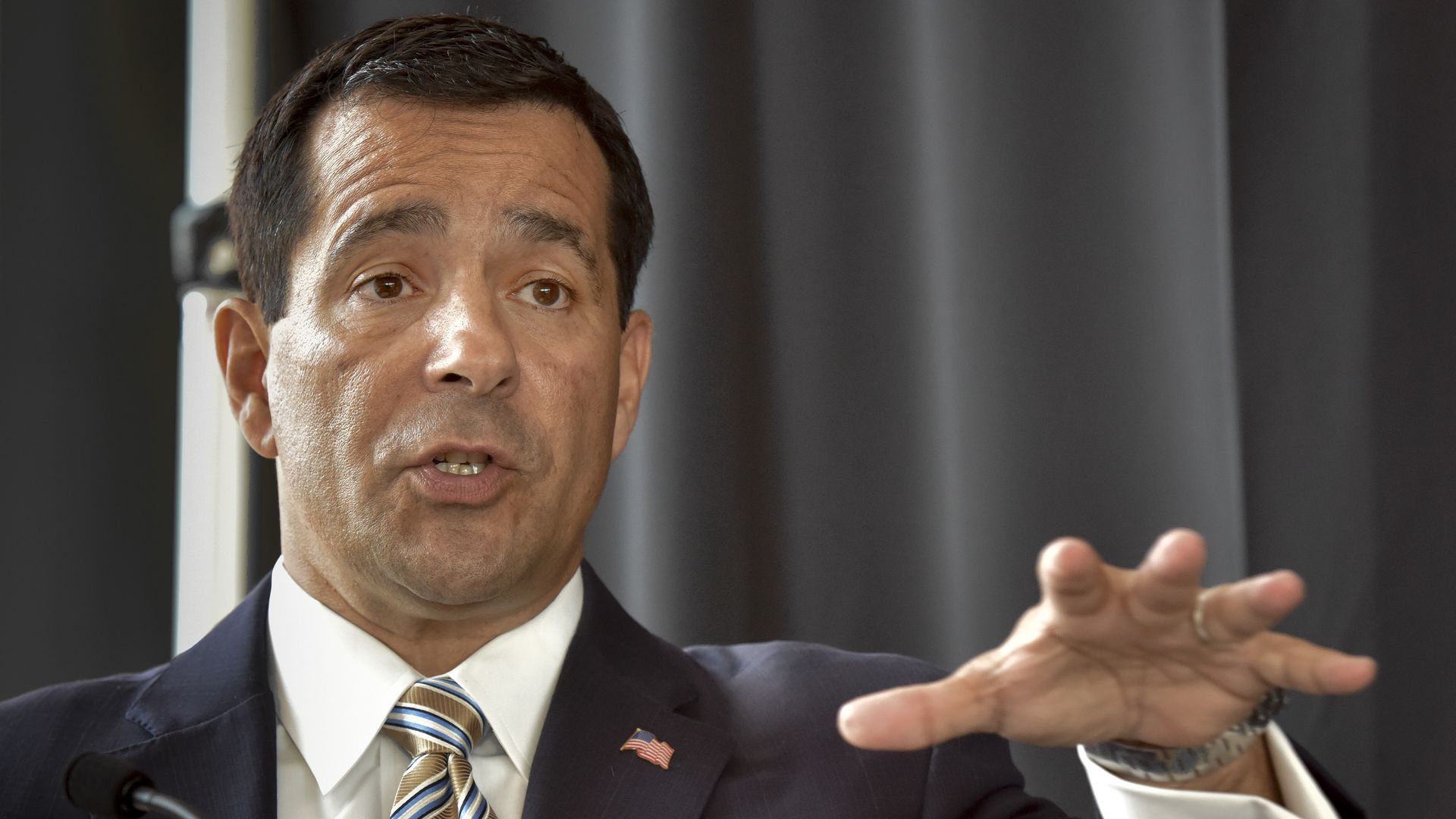Counterintelligence chief names China, Russia and Iran as top election security threats
Add Axios as your preferred source to
see more of our stories on Google.

William Evanina. Photo: Bill O'Leary/The Washington Post via Getty Images
William Evanina, the nation's top counterintelligence official, said Friday that China, Russia and Iran present the most pressing threats for election interference in the 2020 presidential race.
Why it matters: November's election is set to see unprecedented use of vote-by-mail options amid the coronavirus pandemic, which could delay results and see baseless pushback from President Trump — potentially allowing foreign actors to sow discord.
The assessments:
- "China is expanding its influence efforts to shape the policy environment in the United States, pressure political figures it views as opposed to China’s interests, and counter criticism of China. Beijing recognizes its efforts might affect the presidential race."
- "Russia's persistent objective is to weaken the United States and diminish our global role. Using a range of efforts, including internet trolls and other proxies, Russia continues to spread disinformation in the U.S. that is designed to undermine confidence in our democratic process and denigrate what it sees as an anti-Russia 'establishment' in America."
- "Iran seeks to undermine U.S. democratic institutions and divide the country in advance of the elections. Iran’s efforts center around online influence, such as spreading disinformation on social media and recirculating anti-U.S. content."
The state of play: Evanina also warned that American "adversaries also seek to compromise our election infrastructure, and we continue to monitor malicious cyber actors trying to gain access to U.S. state and federal networks, including those responsible for managing elections."
The backdrop: The Trump administration ordered China to close its consulate in Houston this week "in order to protect American intellectual property and Americans' private information," triggering a tit-for-tat response with the forced closure of the U.S. consulate in Chengdu.
- U.K., U.S. and Canadian authorities recently warned that hackers associated with Russian intelligence services have tried to steal information from researchers working to develop a coronavirus vaccine.
